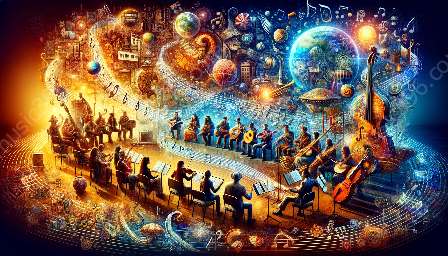Indigenous music represents a vital aspect of the rich cultural traditions and heritage of Indigenous communities. In recent years, there has been a growing focus on revitalization projects that aim to preserve, promote, and celebrate Indigenous music. These projects have not only contributed to the preservation of traditional music forms but have also fostered a sense of cultural pride and identity among Indigenous peoples. This article delves into the significance of these revitalization efforts, their impact on Indigenous music and culture, and the broader implications of the intersection of music and culture, particularly within Indigenous communities.
The Importance of Indigenous Music
Music has always been an integral part of Indigenous cultures, serving as a means of storytelling, expressing spiritual beliefs, and preserving historical narratives. Indigenous music reflects a profound connection to the land, nature, and the community, encompassing a diverse range of musical styles, instruments, and oral traditions.
For Indigenous communities, music is not merely a form of entertainment but a vehicle for transmitting cultural knowledge, reinforcing social bonds, and affirming a collective sense of identity. The significance of Indigenous music extends beyond its artistic value, embodying the cultural, spiritual, and ancestral heritage of Indigenous peoples.
Revitalization Projects and Preservation Efforts
Revitalization projects in Indigenous music aim to address the impact of colonialism, cultural assimilation, and the erasure of indigenous languages and traditions. These initiatives seek to revitalize and preserve Indigenous music forms, ensuring their continuity for future generations. Through various endeavors such as music education programs, recording initiatives, and community-based cultural events, these projects have played a crucial role in safeguarding and promoting Indigenous musical traditions.
Moreover, revitalization efforts have sought to empower Indigenous musicians, composers, and performers, providing platforms for their voices to be heard and celebrated. By embracing traditional music forms and incorporating contemporary elements, these projects have enabled the evolution of Indigenous music, fostering a dynamic and resilient musical landscape.
Impact on Indigenous Communities
The impact of revitalization projects in Indigenous music extends beyond the realm of artistic expression. These efforts have contributed to the revitalization of Indigenous languages, the preservation of cultural knowledge, and the reclamation of heritage. By engaging with traditional music practices, younger generations are able to reconnect with their roots, revitalizing pride in their cultural identities.
Additionally, the resurgence of Indigenous music has prompted broader societal recognition and appreciation of Indigenous cultures. It has provided a platform for promoting cross-cultural understanding and bridging the gap between Indigenous and non-Indigenous communities, fostering mutual respect and appreciation for diversity.
The Intersection of Music and Culture
The relationship between music and culture is integral to understanding the transformative power of Indigenous music. Indigenous music serves as a conduit for the transmission of cultural values, social norms, and spiritual beliefs, encapsulating the essence of Indigenous worldviews and cosmologies. Through music, cultural traditions are perpetuated, and intergenerational knowledge is passed down, reinforcing the continuity of Indigenous cultures.
Furthermore, the fusion of traditional and contemporary elements in Indigenous music exemplifies the adaptive nature of cultural practices. Indigenous musicians have demonstrated resilience and innovation by integrating modern musical technologies and styles while retaining core traditional elements, thus enriching the cultural tapestry of Indigenous societies.
Conclusion
Revitalization projects in Indigenous music play a pivotal role in preserving and celebrating the diverse musical heritage of Indigenous communities. These initiatives not only promote cultural resilience and pride but also foster a deeper understanding of Indigenous cultures within the broader societal framework. By recognizing the transformative power of Indigenous music in perpetuating cultural traditions, fostering community cohesion, and promoting cross-cultural dialogue, we can embrace the profound impact of music on the preservation of Indigenous cultures and the promotion of cultural diversity.






















